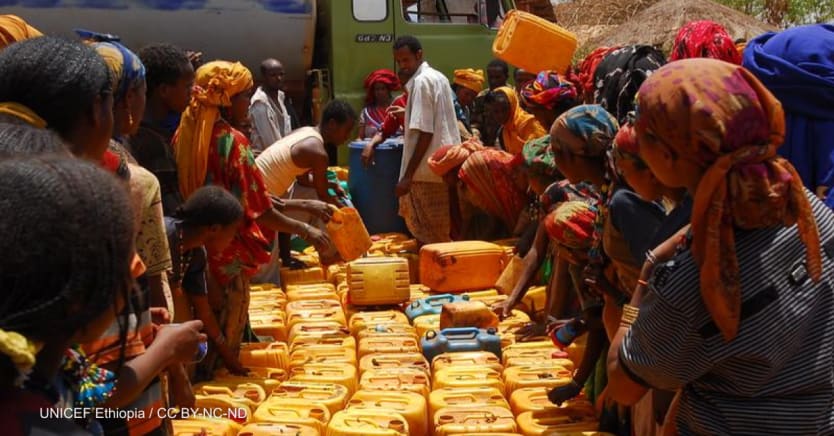
Cities must address corruption and integrity failures if they’re to achieve the Sustainable Development Goal 6 on clean water and sanitation for all. That’s the message coming from the new Water Integrity Global Outlook 2021.
“Building integrity can address some of the root causes of failures in WASH service provision and help to make sure we leave no one behind,” Barbara Schreiner, executive director at Water Integrity Network, said at a World Water Week session to launch the report. “There really is no other way: Water and sanitation are too important to leave them unprotected from poor integrity, corruption, and malpractice.”
As it stands, over 14% of the urban population lacks access to safe drinking water and 38% doesn’t have safely managed sanitation. According to the report — which was produced by WIN — efforts to reduce those numbers are being jeopardized by the mismanagement of WASH project funding, inflated water prices, kickbacks, and sextortion.
“It is clear to me that a lack of integrity in the water sector costs lives.”
— John Oldfield, former principal, Global Water 2020In fact, the report estimates that between 6% and 26% of total WASH expenditure is lost to corruption on a yearly basis. If the annual cost to meet SDG 6 sits at $114 billion that means a loss of between $6.8 billion and $30 billion, Schreiner said. “That’s a chunk of change,” she added. “But the reality is the financial costs are only part of the costs,” she said, adding that integrity failures can often mean poor quality, delayed, or missing WASH infrastructure.
Inadequate or absent WASH facilities impact health — drinking unsafe water can lead to illnesses such as cholera and diarrhea while a lack of hygiene allows infections to spread — and can lead to a decline in productivity, such as days lost at school or work.
“It is clear to me that a lack of integrity in the water sector costs lives,” John Oldfield, former principal of Global Water 2020, told Devex, adding that more integrity would mean safer lives and better livelihoods especially for women and girls, lower-income families, and those living in peri-urban informal settlements.
For those forced to engage in sexual activity in order to access WASH — 1 in 5 women in Latin America and the Caribbean, the Middle East, and North Africa have experienced sextortion or know someone who has in accessing a public service — there are likely impacts on mental health too.
WASH facilities can prevent gender-based violence, experts say
Being attacked on the walk to the latrine. Harassed whilst collecting water. Assaulted at a handwashing facility. Devex explores how designing WASH facilities through a gender lens could reduce gender-based violence.
Now is the time to clean up WASH in cities, Schreiner said, especially as the number of climate crises and people living in cities continues to rise. It’s estimated that nearly 70% of the population will be living in urban areas by 2050. Building integrity, Schreiner explained, involves using vested powers and resources ethically and honestly to ensure people have access to WASH.
“And it can be done,” she added.
In La Paz, Bolivia, the city rolled out a zero-tolerance policy for corruption and rewards for civil servants working with integrity.
In Mexico, civil society organization ControlaTuGobierno is holding WASH officials to account by reviewing audit report findings.
And in Turkey, 11 of the country’s municipalities have adopted five actionable principles in a bid to reduce the effect of the climate crisis on water resources, Tunç Soyer, Mayor of Izmir, said in the launch session.
Local governments have a critical role to play, Soyer said. “By building integrity at the local level we can provide better services to our residents and build resilience,” he explained.
But before that can happen, Oldfield said getting the report and tools in front of the right audiences will be key. So will then getting those audiences to “dedicate the financial, human, and technical resources necessary to promote integrity in the water sector in their contexts.”
As top priorities, WIGO 2021 calls for certain sanitation standards to be set in cities, for those in informal settlements to be recognized in data so that gaps can be filled, and for opportunities around petty corruption to be limited while supporting women to report incidents of sextortion.
“Some energy stakeholders say that the biggest “new” source of energy is greater efficiency. I feel the same way about the global water sector and corruption. The biggest new source of water could be efficiency and integrity,” Oldfield said.
Visit the WASH Works series for more coverage on water, sanitation, and hygiene — and importantly, how WASH efforts intersect with other development challenges. You can join the conversation using the hashtag #WASHWorks.









